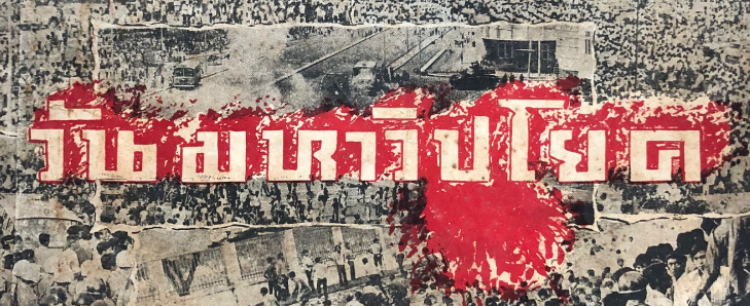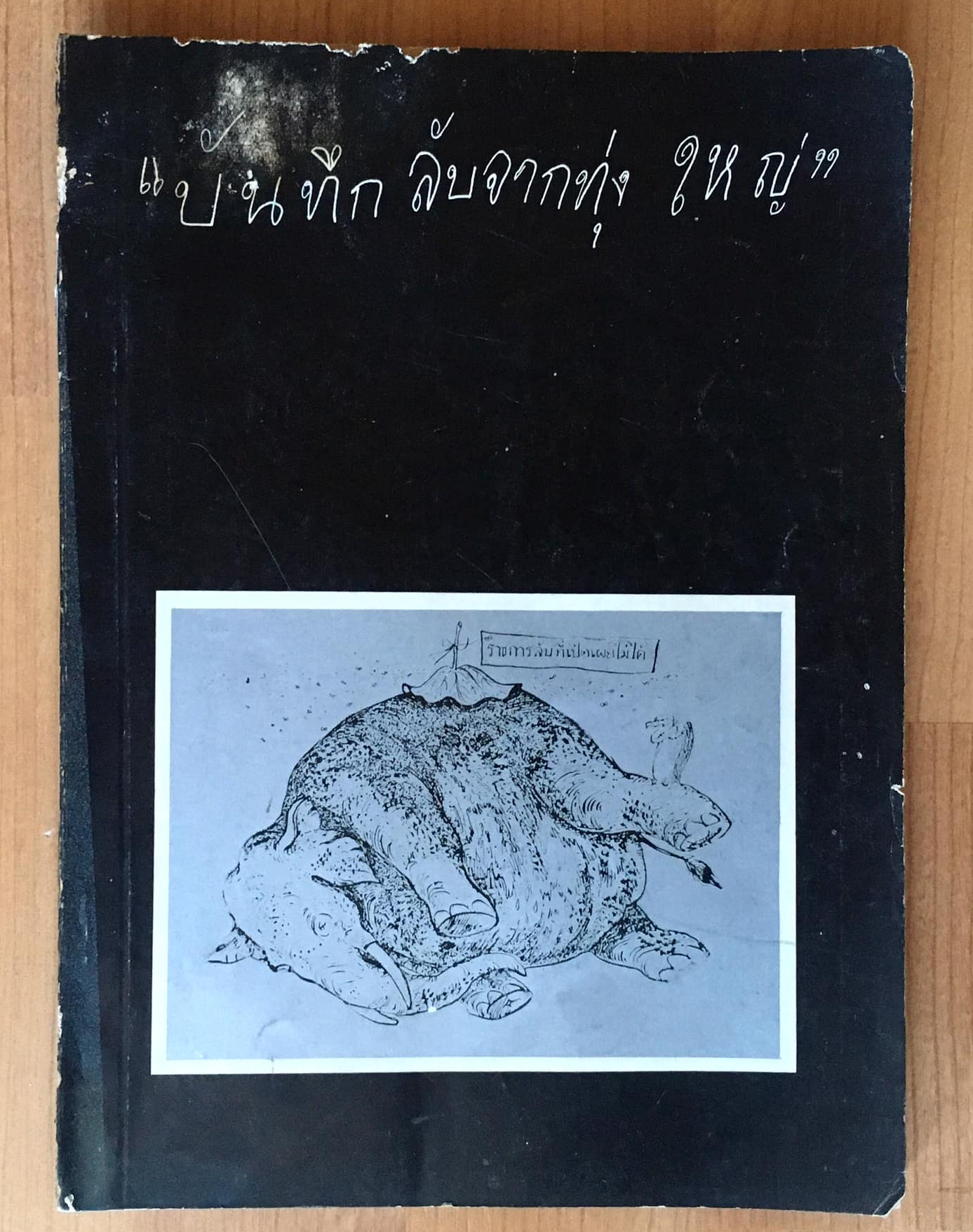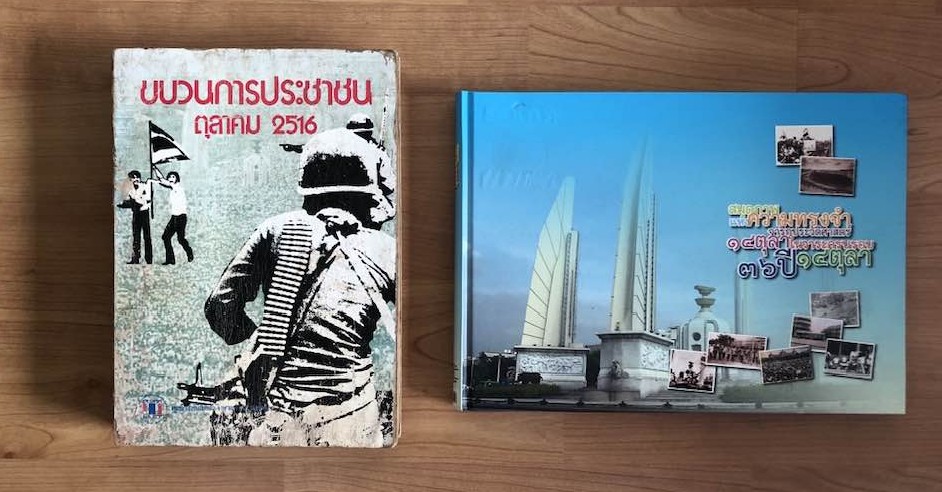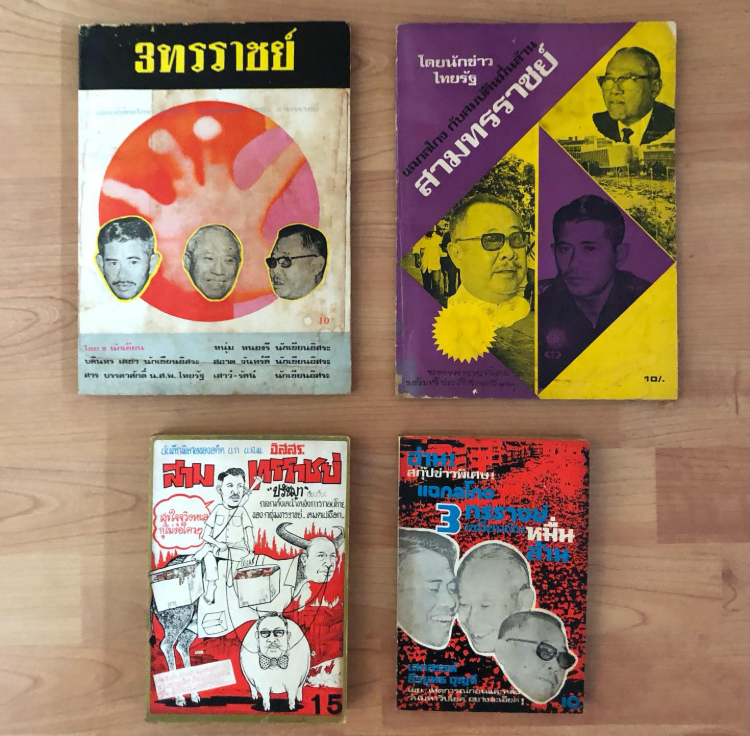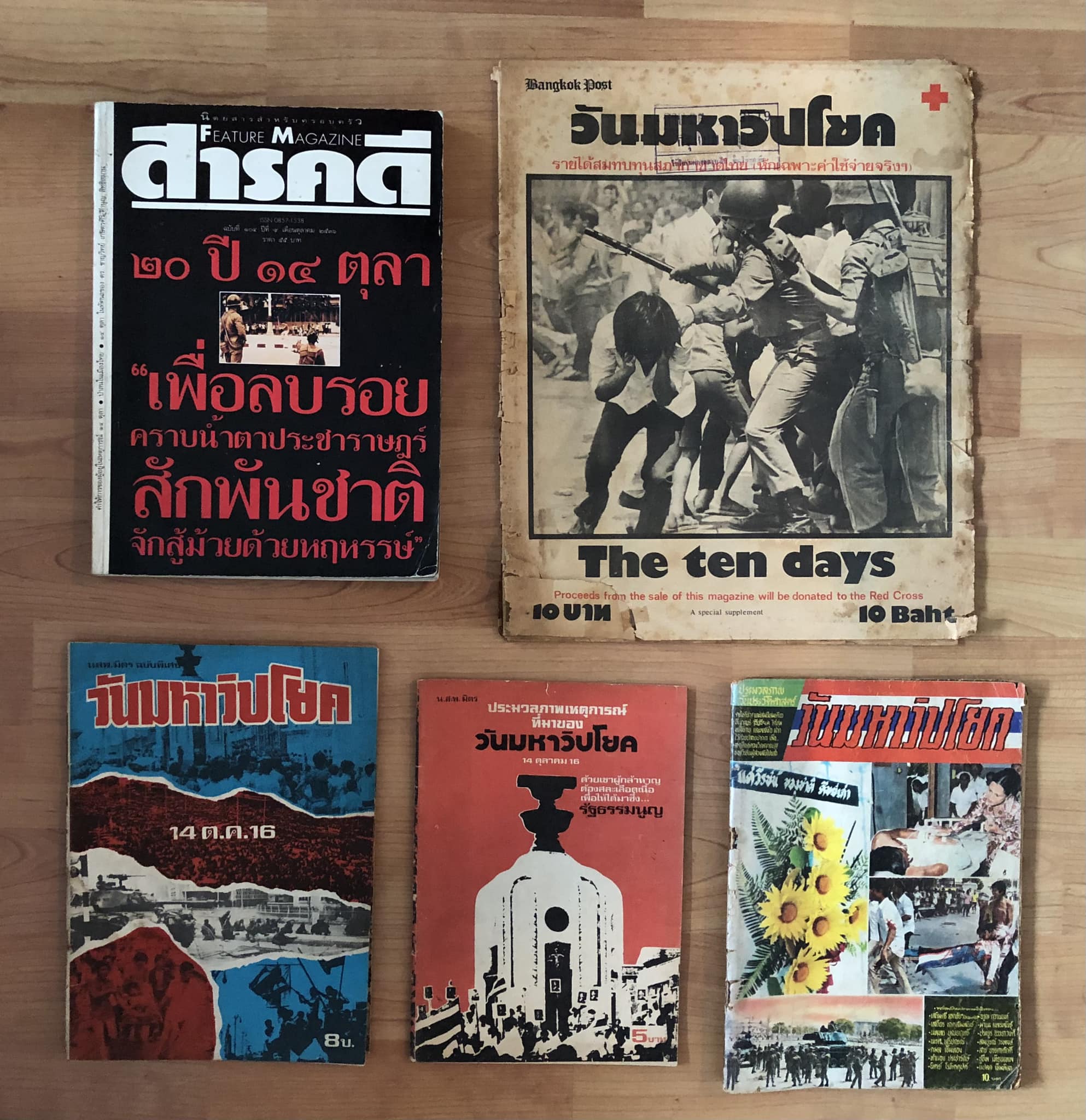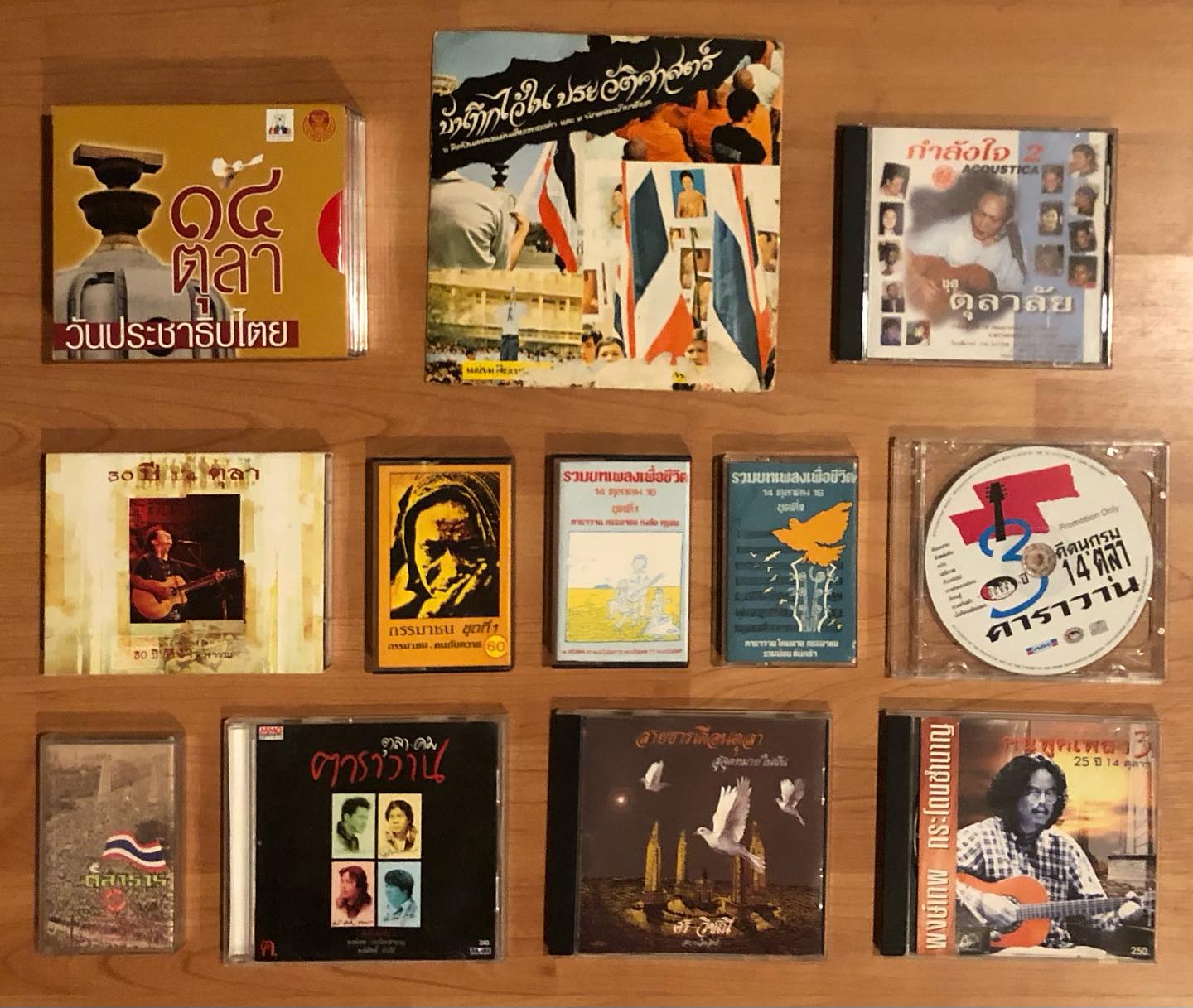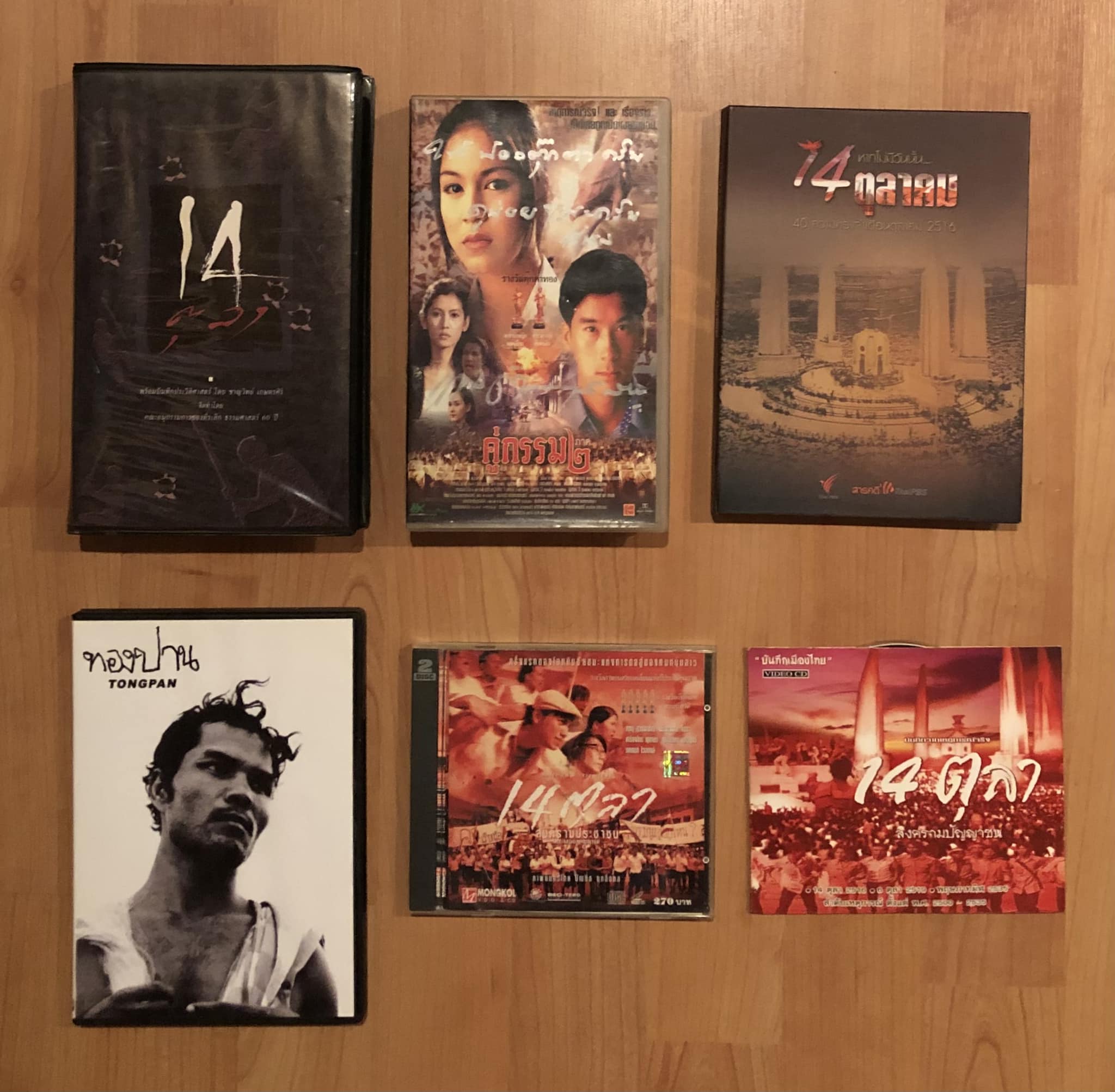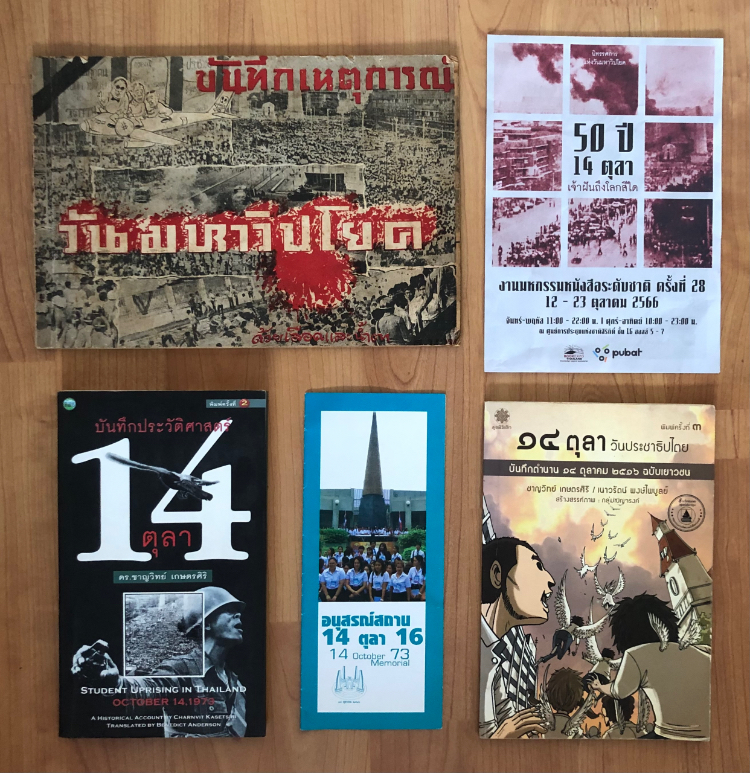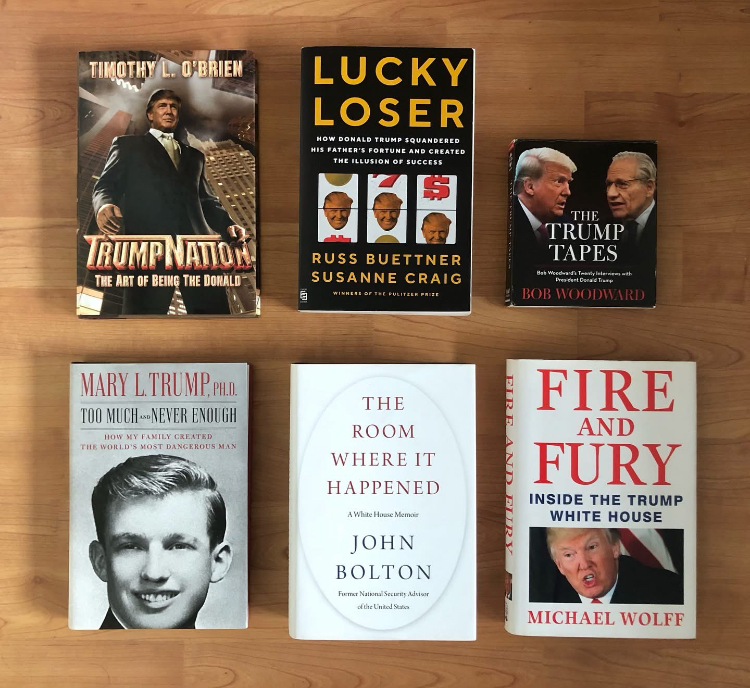
On 6th October 1976, forty-six people, most of whom were students, were killed in a military massacre at Thammasat University in Bangkok. The bodies of the victims were desecrated by baying mobs, and the incident remains one of the most shocking moments in Thailand’s modern history.
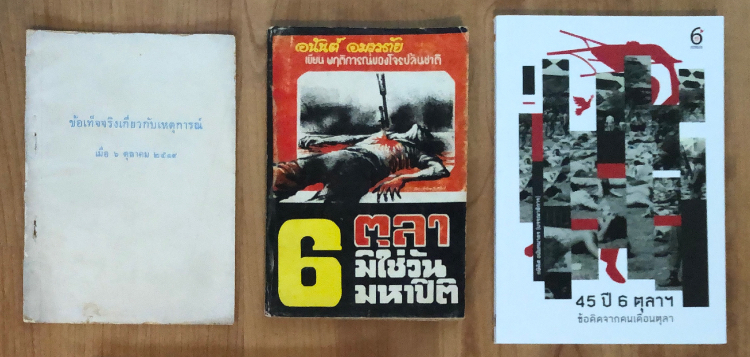
The Thammasat students had been protesting against the return from exile of Thanom Kittikachorn, the coup leader who had fled into exile in 1973. The circumstances surrounding Thanom’s arrival back in Thailand in September 1976 remain unclear: was his return orchestrated by the military to provoke a demonstration and justify another coup? (Thanom had previously returned in December 1974, against the wishes of the prime minister. On that occasion, 10,000 Thammasat students protested against him, and he left the country again two days later.)
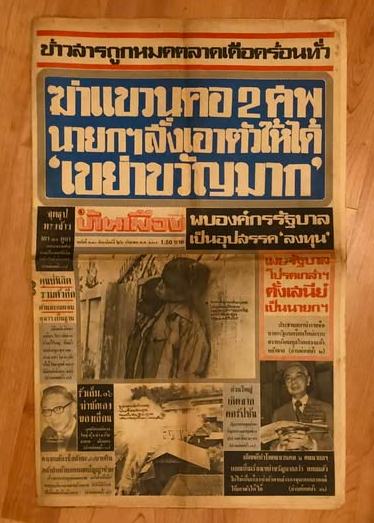
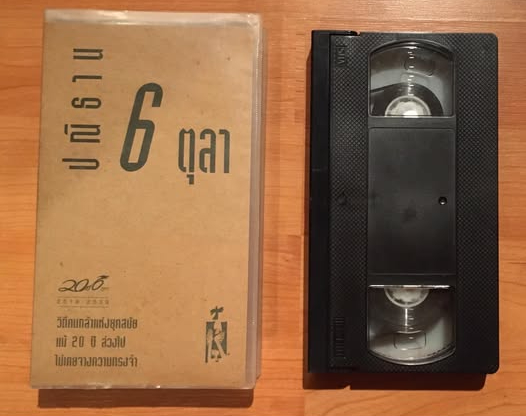
On 25th September 1976, two anti-Thanom activists (Choomporn Thummai and Vichai Kasripongsa) were hanged by the police, and on 4th October 1976 a group of Thammasat students staged a reenactment of the hanging. One of the students who posed as a victim, Apinan Buahapakdee, coincidentally bore a passing resemblance to Crown Prince Vajiralongkorn (who is now King Rama X).
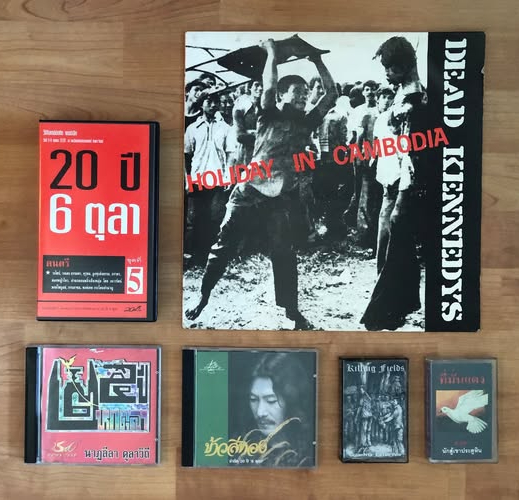
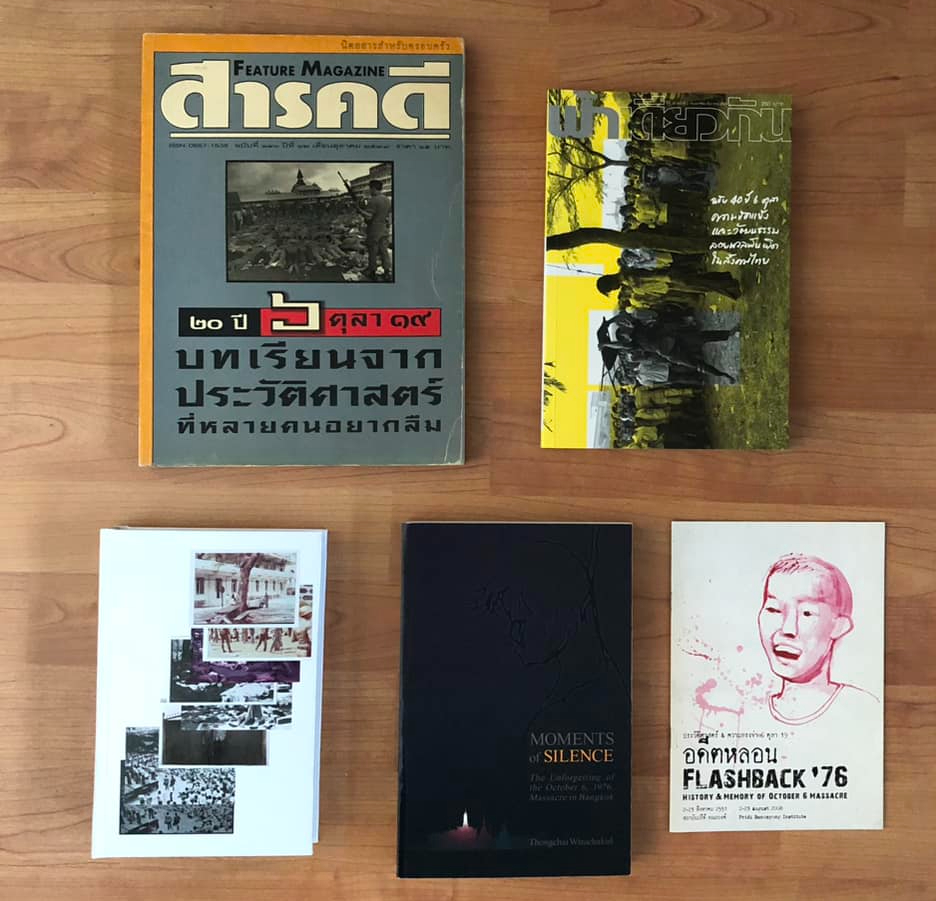
On its front page on 6th October 1976, the nationalist Dao Siam (ดาวสยาม) newspaper printed Apinan’s photograph and accused the students of hanging the Prince in effigy. Again, the circumstances are unclear, and there are rumours that the photo was retouched to accentuate the royal resemblance.
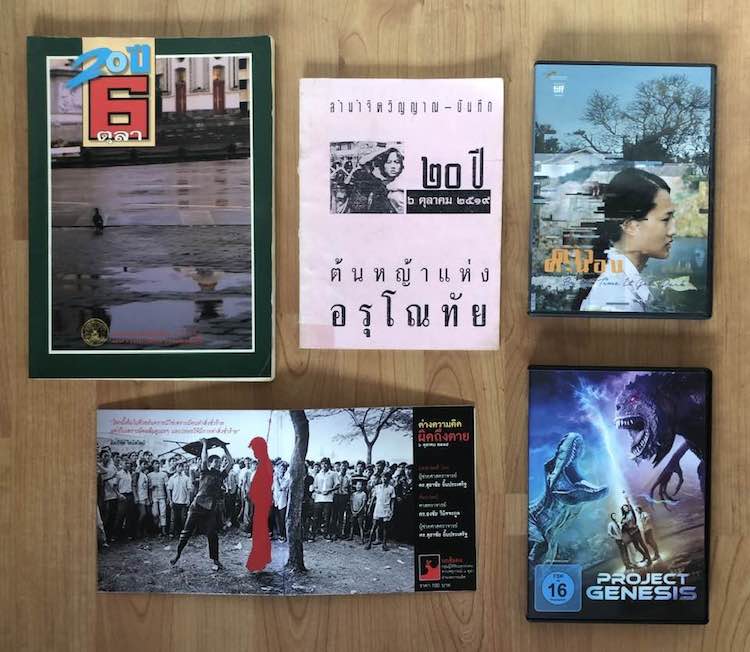
Militia groups (the Village Scouts, Nawaphon, and Red Gaurs) joined the police and army in storming the Thammasat campus, and a coup took place later that day. I have collected various items related to 6th October, including cassettes, records, CDs, DVDs, videotapes, books, magazines, and newspapers.

